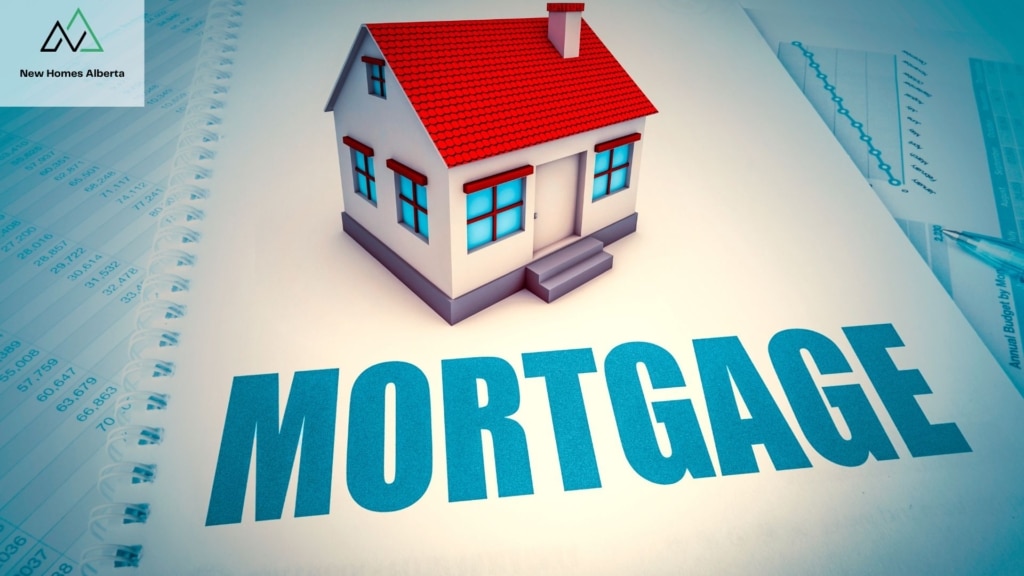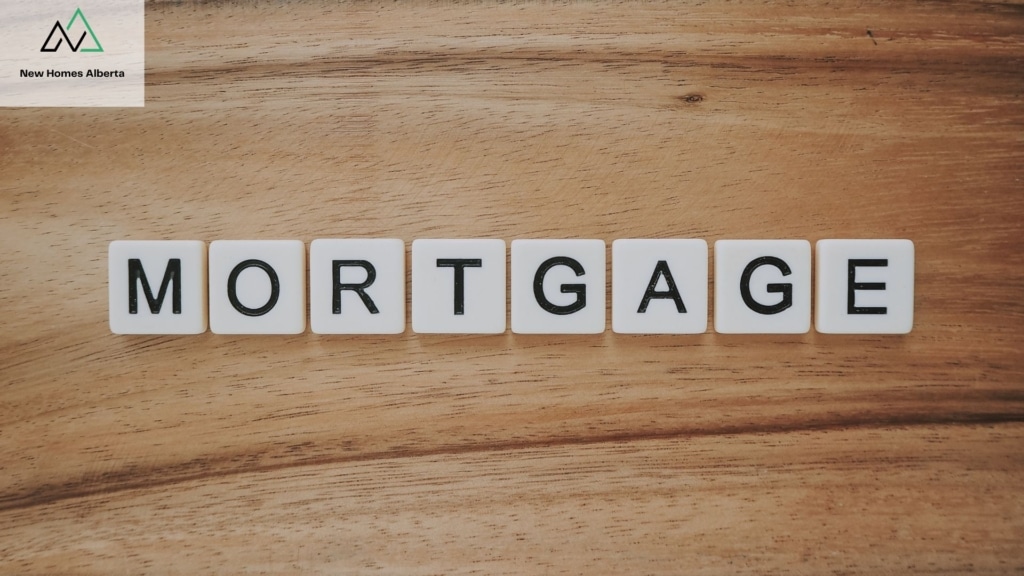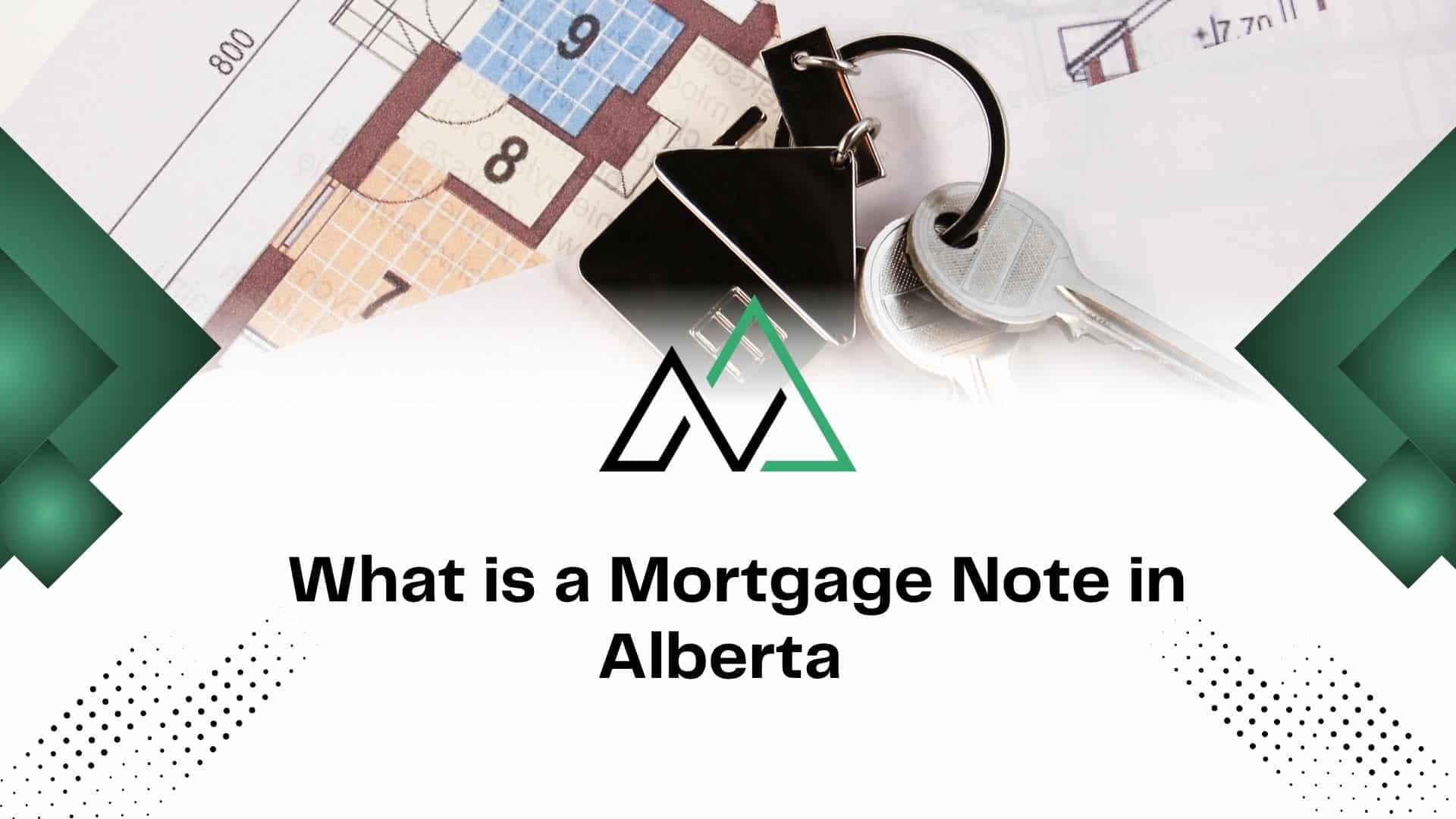Understanding Mortgage Notes in Alberta Real Estate
A mortgage note is a legal document that represents a borrower’s promise to repay a loan secured by real estate property. As of June 2025, approximately 68% of Alberta homeowners carry mortgage notes, with the average mortgage amount reaching $420,000 according to recent provincial data. These financial instruments serve as the foundation of real estate transactions across Alberta’s diverse housing market.
What is the Current Mortgage Note Market Like in Alberta?

Alberta’s mortgage note market reflects strong fundamentals with competitive rates averaging 5.2% for fixed mortgages as of June 2025, supported by steady employment growth and continued population influx from other provinces.
Alberta Mortgage Note Market Metrics – June 2025
| Metric | Current Value | Previous Year | Change |
| Average Mortgage Rate | 5.2% | 4.8% | +0.4% |
| Average Home Price | $420,000 | $398,000 | +5.5% |
| Approval Rate | 78% | 82% | -4% |
| Average Down Payment | 18% | 16% | +2% |
| Default Rate | 0.3% | 0.2% | +0.1% |
| Average Amortization | 27 years | 26 years | +1 year |
| First-Time Buyer % | 42% | 45% | -3% |
Understanding Mortgage Note Components and Legal Requirements
Essential Elements of Every Alberta Mortgage Note
Every mortgage note in Alberta must contain specific legal elements to be enforceable. The principal amount represents the borrowed sum, while the interest rate determines the cost of borrowing. According to Alberta’s Real Estate Council, all mortgage documentation must comply with provincial lending regulations.
The repayment terms outline the schedule and method of payment, typically monthly installments over 15 to 30 years. Most Alberta mortgage notes include provisions for prepayment, allowing borrowers to pay down principal faster without penalties after the initial term period.
Default provisions protect lenders by outlining consequences if borrowers fail to meet payment obligations. Alberta’s Land Titles system provides security through registered interests that ensure proper documentation and priority ranking.
Provincial Registration Requirements
All mortgage notes in Alberta must be registered through the Land Titles Office to establish legal priority. This registration process, managed through SPIN (Spatial Information System), ensures public record availability and protects both lender and borrower interests.
Registration fees typically range from $50 to $200 depending on the mortgage amount and complexity. The Alberta Registries system maintains these records permanently, providing searchable databases for due diligence purposes.
Mortgage Note vs. Mortgage Deed Differences
While often confused, mortgage notes and mortgage deeds serve distinct purposes in Alberta real estate transactions. The mortgage note represents the debt obligation and repayment promise, while the mortgage deed provides security by granting the lender a claim against the property.
Alberta follows a “mortgage system” rather than a “deed of trust” system used in some jurisdictions. This means the borrower retains legal title while the lender holds a registered security interest. This distinction becomes crucial during foreclosure proceedings under Alberta’s Law of Property Act.
Types of Mortgage Notes Available in Alberta

Conventional Mortgage Notes
Conventional mortgage notes represent the most common form of residential financing in Alberta. These typically require 20% down payment for properties over $500,000 or 5% minimum for properties under this threshold. Major lenders including RBC, TD, and Scotiabank dominate this market segment.
Interest rates for conventional mortgages currently range from 4.8% to 5.6% depending on term length and borrower qualifications. Fixed-rate options provide payment certainty, while variable rates offer potential savings during declining rate environments.
High-Ratio Mortgage Notes
High-ratio mortgages require mortgage default insurance through CMHC, Genworth, or Canada Guaranty when down payments fall below 20%. These mortgage notes include insurance premiums ranging from 0.6% to 4.5% of the loan amount, depending on the loan-to-value ratio.
Alberta’s strong employment market, particularly in Calgary and Edmonton, makes high-ratio mortgages accessible to many first-time buyers. According to Calgary’s development permit data, approximately 60% of new home purchases utilize high-ratio financing.
Private Mortgage Notes
Private mortgage notes fill gaps when conventional financing isn’t available or suitable. These instruments typically carry higher interest rates, ranging from 8% to 15% annually, but offer greater flexibility in terms and faster approval processes.
Private lenders often focus on property value rather than borrower income, making these notes valuable for self-employed individuals or investors. Alberta’s robust real estate market supports private lending through strong property values and diverse economic sectors.
Commercial Mortgage Notes
Commercial mortgage notes finance income-producing properties including office buildings, retail centers, and industrial facilities. These instruments typically require 25% to 35% down payments with terms ranging from 5 to 25 years.
Alberta’s commercial market benefits from diverse economic activity centered in Calgary’s energy sector and Edmonton’s government and education presence. According to Alberta’s economic development resources, commercial mortgage activity increased 12% in 2024.
How to Obtain a Mortgage Note in Alberta: Step-by-Step Guide

Step 1: Assess Your Financial Position
Calculate your debt-service ratios using gross debt service (GDS) and total debt service (TDS) calculations. Alberta lenders typically require GDS ratios below 35% and TDS ratios under 42% for conventional financing.
Gather necessary documentation including employment letters, tax returns, bank statements, and investment records. Credit scores above 680 generally qualify for prime lending rates, while scores between 600-680 may require alternative documentation or higher rates.
Step 2: Get Pre-Approved
Submit applications to multiple lenders to compare rates and terms. Pre-approval letters demonstrate serious intent to sellers and provide negotiating advantages in competitive markets.
Most Alberta lenders complete pre-approvals within 24-48 hours for conventional applications. Complex situations involving self-employment or multiple income sources may require additional time and documentation.
Step 3: Engage Professional Services
Work with licensed mortgage brokers or directly with institutional lenders. Brokers access multiple lender networks and can often secure better rates or terms than direct applications.
Retain qualified legal representation familiar with Alberta real estate law. Lawyers ensure proper documentation, conduct title searches, and protect your interests throughout the transaction process.
Step 4: Submit Formal Application
Complete detailed mortgage applications including property information once you’ve identified your target purchase. Provide all requested documentation promptly to avoid delays.
Order professional appraisals and property inspections as required by your lender. These typically cost $300-600 but protect against overpaying or discovering hidden defects.
Step 5: Navigate Underwriting Process
Lenders review applications through automated and manual underwriting systems. This process typically takes 7-14 business days for straightforward applications.
Respond quickly to any requests for additional information or clarification. Delays during underwriting can jeopardize purchase agreements with tight closing deadlines.
Step 6: Complete Legal Documentation
Review all mortgage documents carefully with your lawyer before signing. Key documents include the mortgage note, mortgage agreement, and various disclosure statements.
Ensure understanding of all terms including payment obligations, default provisions, and prepayment options. Ask questions about any unclear language or requirements.
Step 7: Register and Fund
Attend legal appointment for document signing and fund transfer. Your lawyer registers the mortgage note with Alberta’s Land Titles Office and arranges fund disbursement.
Receive confirmation of registration and mortgage funding. Keep all documents in secure location for future reference and potential refinancing opportunities.
Step 8: Establish Payment Systems
Set up automatic payment arrangements with your lender to ensure timely payments. Most lenders offer various payment frequency options including monthly, bi-weekly, or weekly payments.
Review mortgage statements regularly and maintain records for tax purposes. Consider making additional principal payments to reduce overall interest costs and shorten amortization periods.
Official Alberta Resources and Regulations
According to Alberta’s Municipal Affairs department, mortgage regulations ensure consumer protection and market stability. The Real Estate Council of Alberta (RECA) oversees mortgage broker licensing and compliance with provincial standards.
Alberta Registries maintains official records of all registered mortgages through the Land Titles system. Property searches through SPIN Alberta provide access to registered interests, liens, and encumbrances affecting specific properties.
The Alberta Land Titles eServices portal allows online access to registration services and document searches. This system streamlines mortgage registration and reduces processing times for standard transactions.
Municipal regulations also impact mortgage notes through property assessment and taxation. Calgary’s assessment and tax information and Edmonton’s property assessment system provide transparency in property valuations affecting mortgage security.
For development properties, mortgage notes must consider municipal permit requirements. Calgary’s development permit process and Edmonton’s development services outline approval procedures that can impact property values and mortgage terms.
Regional markets including Red Deer, Lethbridge, and Medicine Hat each maintain specific regulations affecting mortgage note requirements and property development standards.
Building permit data and permit values from Alberta’s regional dashboard provide market insights supporting mortgage note valuations and lending decisions.
Frequently Asked Questions About Mortgage Notes
What is the Difference Between a Mortgage Note and a Promissory Note?
A mortgage note specifically relates to real estate transactions and includes property as security, while promissory notes can cover any debt obligation without requiring collateral backing.
How Long Does a Mortgage Note Last in Alberta?
Mortgage notes in Alberta typically last the full amortization period, usually 25-30 years, though they may be renewed or renegotiated at term maturity every 1-5 years.
Can I Transfer My Mortgage Note to Another Property?
Most mortgage notes are property-specific and cannot be transferred. However, some lenders offer portability options allowing mortgage transfer to new properties under specific conditions.
What Happens if I Default on My Mortgage Note?
Default triggers foreclosure proceedings under Alberta law, potentially resulting in property sale to recover outstanding debt. Lenders must follow specific legal procedures before seizing property.
Are Mortgage Notes Public Records in Alberta?
Yes, mortgage notes registered through Alberta’s Land Titles system become public records accessible through official government databases and search services.
Can I Pay Off My Mortgage Note Early?
Most Alberta mortgage notes allow prepayment, though some include penalties during initial terms. Review your specific agreement for prepayment terms and restrictions.
How Do Interest Rate Changes Affect My Mortgage Note?
Fixed-rate notes maintain consistent payments regardless of market changes, while variable-rate notes fluctuate with prime rate movements as set by the Bank of Canada.
What Documentation Do I Need for a Mortgage Note?
Required documentation typically includes employment verification, income statements, credit reports, property appraisals, and legal identification. Specific requirements vary by lender and loan type.
Can Foreign Buyers Obtain Mortgage Notes in Alberta?
Yes, foreign buyers can obtain mortgage financing in Alberta, though they may face additional documentation requirements, higher down payment minimums, and potentially higher interest rates.
How Do Municipal Taxes Affect Mortgage Notes?
Property taxes become part of your total housing costs considered in debt-service ratio calculations. Many lenders collect taxes through mortgage payments and remit directly to municipalities.

